Monarda for Butterflies |
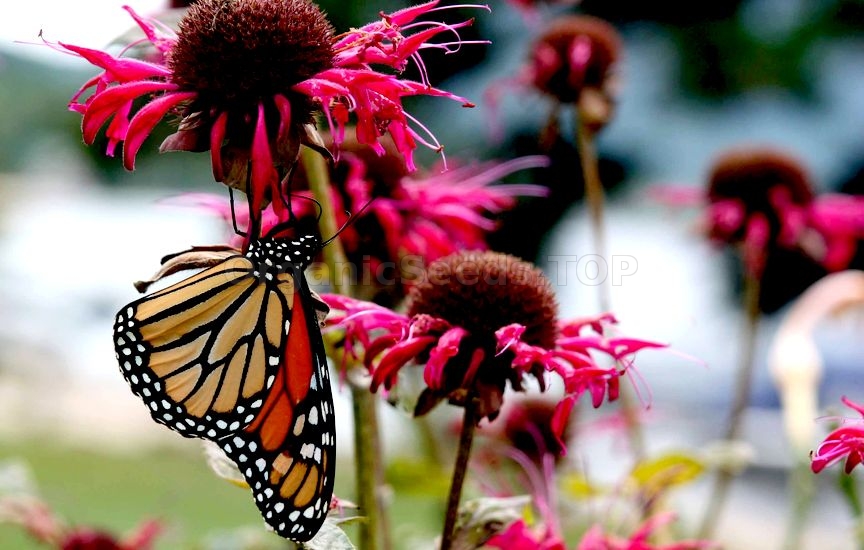 Make a great addition to your herb garden or flower border and grow Bee Balm! This perennial has many attractive features that might catch your attention, as well as the attention of the hummingbirds, butterflies, and bees that enjoy its rich nectar. Monarda is native to North America. It is in the mint family and common names include Bee Balm, Oswego Tea, Wild Bergamot, Horsemint and several more. The plant has a clumping, upright growth habit, square stems, and it spreads by underground rhizomes. The tubular flowers are typically shades of red, purple, pink and white, and resemble small fireworks. They are late blooming, adding lots of color to the garden when other flowers have finished. 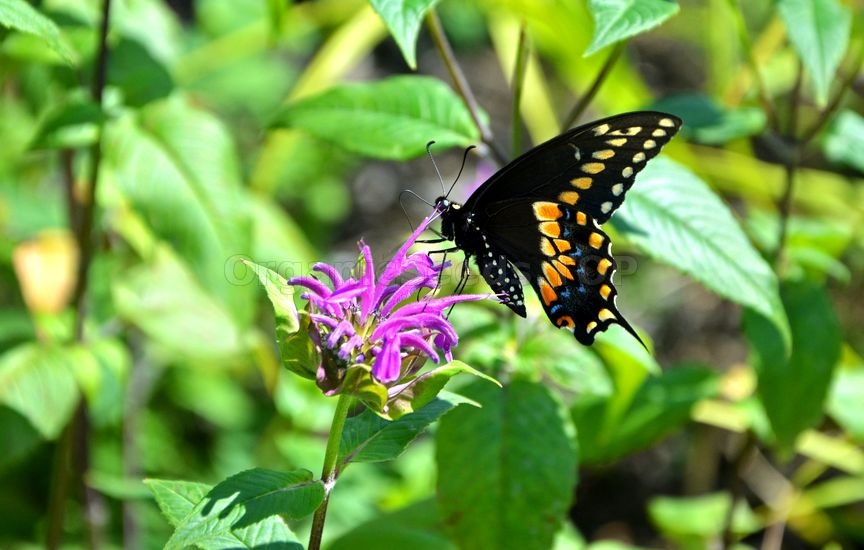 The early American settlers found that the dried Monarda leaves made a good tea, naming the plant Oswego tea as the plant grew along the Oswego River. After the Boston Tea Party, Oswego tea was used instead of the British black tea. Long before the Europeans came to America, the Native American tribes were using Bee Balm as a cold remedy and an antiseptic. Even today, the essential oil is being scientifically researched for its benefits in treating wounds and prevention against infections. Species include:
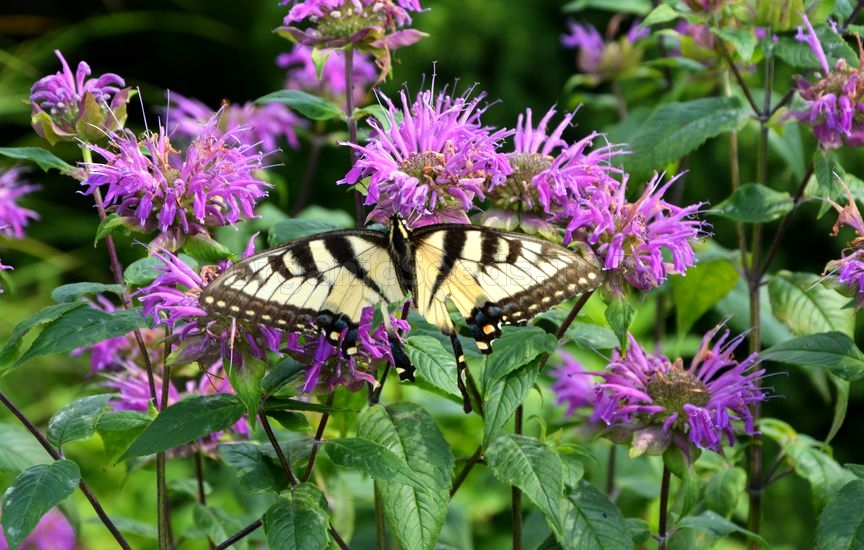 Bee balm plants perform best with 6 hours of sun each day, and they tolerate some light shade. Plants grown in shade will not flower as heavily, and they are more susceptible to powdery mildew. Monarda prefers moist but well-drained soils. During dry periods watch for the foliage wilting, water at the roots and soak deeply. A mulch around the base of the plant will help hold in moisture as well as suppress weeds. These perennials do not require much fertilizer. A small amount of an all-purpose fertilizer, like a 10-10-10, sprinkled around the base of the Monarda plant in the early spring is sufficient. Because the Bee Balm plant spreads, it should be divided every 2 - 3 years in the early spring. Divide the clump into sections using a sharp knife. 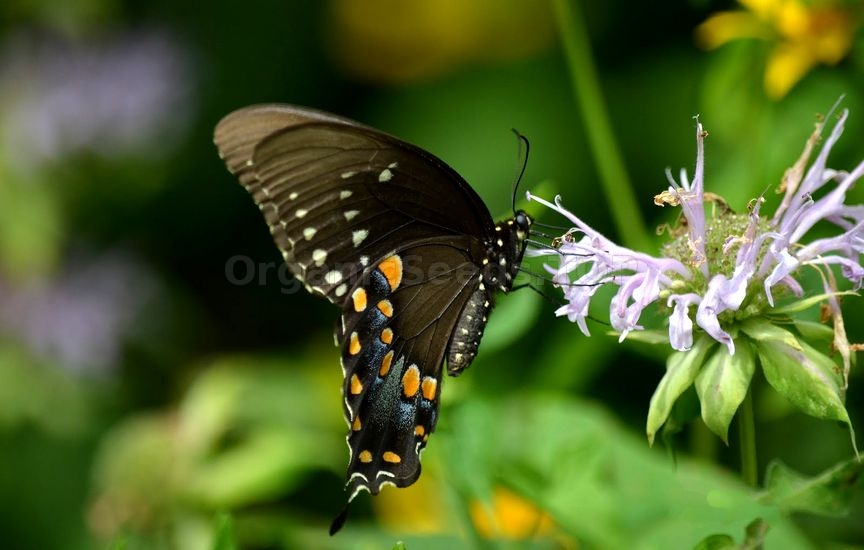 Discard the old center of the plant, and then plant each section making sure that there are several shoots and good roots. To help avoid powdery mildew, grow Bee Balm where there is good air circulation, avoid overhead watering, and space the plants about 24 - 30 inches apart. In the fall, cut back the plants, remove old stems and foliage, and clean up the old mulch. Monard propagation is through flower seeds, cuttings or root divisions. The Bee Balm seeds can be started indoors in the late winter for transplanting outside. Or the Monarda seeds can be started directly outside in a weed free seed bed that has been cultivated and raked to a fine tilth. 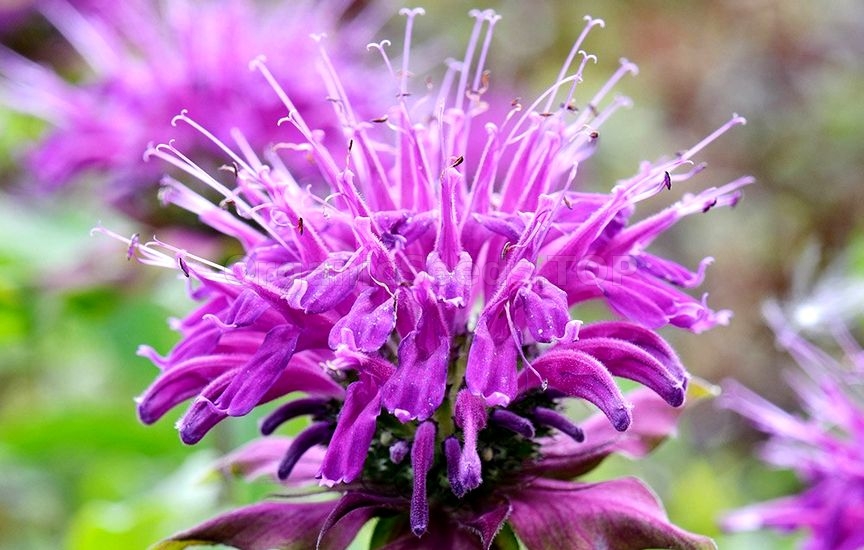 Cover the flower seeds thinly with soil, no more than the thickness of the seed. The seeds can be sown outdoors in the early spring before the frost season has ended and in the fall allowing 8 weeks before frost season to begin. When grown from flower seeds, Monarda will not have blooms until the 2nd or possibly even the 3rd year. In addition to inviting bees, butterflies and hummingbirds to the garden, Bee Balm is a great flower for cutting, and the foliage is wonderfully aromatic and has a minty scent. Monarda is long flowering, and dead heading the spent blooms encourages more flowers. Both the flowers and leaves can be dried and used in potpourri and sachets. 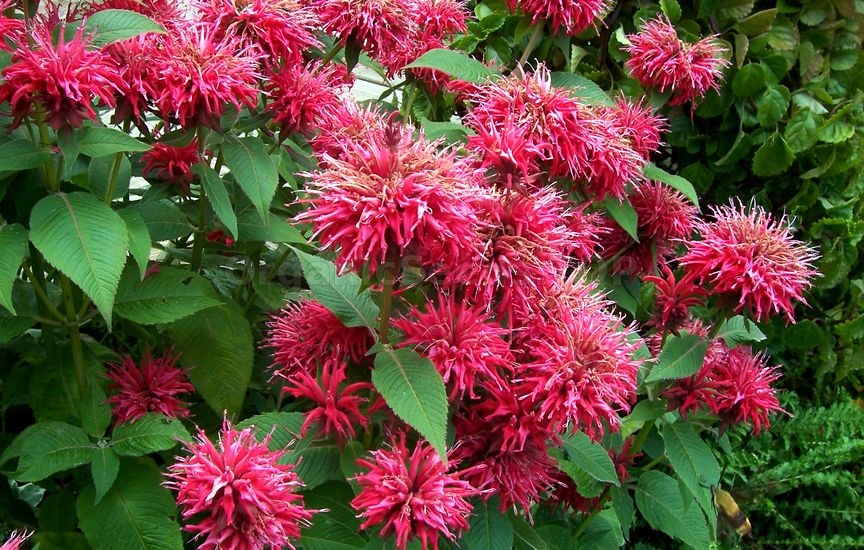 For drying, cut the flowers just before they open. Because of the plant’s height, place the plant in the middle or toward the back of the flower border. But always make sure that Bee Balm is in clear view from the window so that you can enjoy watching the wildlife that comes to visit! |
|
|
